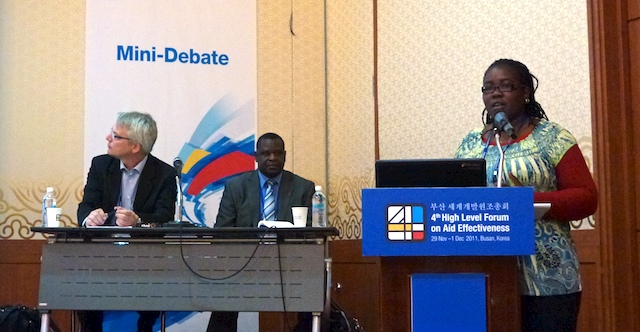Social dialogue in East Africa – cooperation between EATUC and LO-FTF
Background
The global economic pressure has resulted in mass layoffs, substantial growth of the informal economy and greater pressure on businesses, which has in turn resulted in severely deteriorating working conditions and access to basic social protection in these countries. It pushed national member states in East Africa to revitalise the sub-regional co-operation within the East African Community (EAC - Kenya, Tanzania, Uganda, Rwanda and Burundi) to promote a stronger regional integration process including inter-regional trade, free movement of capital/labour/goods, harmonisation of education etc.
Over the last four years, the LO/FTF Council support to the East African trade union movement has been focusing on strengthening the dialogue between the trade union movement in East Africa and the national governments, EAC institutions etc. with a view to lobby for a labour market agenda in EAC. By strengthening the regional secretariat of the East African Trade Union Confederation (EATUC) as a regional mechanism connecting the national trade union centres in East Africa, labour has taken a more proactive an collective stronger voice in the ongoing and future development of the East African Community (EAC).
Goals
The goal of this program has been to improve working conditions, help to create decent, sustainable employment and contribute to both the democratic and economic development by supporting regional advocacy and local social dialogue at work.
The first specific objective of the regional partner EATUC is to effectively advocate and lobby the East African Community on a range of labour market issues under the Decent Work Agenda. Part of this has been to be recognised by EAC technical committees and institutions as a technical resource organisation - and platform for a dialogue with national trade unions on labour market and socio-economic issues in East Africa.
The second specific objective has been for the national centres to build their individual capacities through the sharing of best practices on social dialogue and other topics – building networks among trainers and organisers.
Innovation
Contrary to conventional national project collaboration, the regional programme design included a regional and national level simultaneously to create regional synergy effects in the social dialogue at EAC level, opening a space for a democratic dialogue and participation at the regional level.
At national level, the centres have increased their capacity to participate in regional discussions and formalised social dialogue with the national governments. Through national leadership meetings and the work of the EATUC Committee of Expert, systematic input and support has been provided by all national centres to the regional level – again benefitting their own national lobby towards government delegations to the EAC.
At the regional level, the EATUC has been key in institutionalising a collective trade union voice in East Africa through well-prepared policy documents and lobbying of policy processes and social dialogue with governments and employers on a social charter, the EAC protocol etc. This work has been supported and endorsed by all national centres. In particular, the work of the Committee of experts has been instrumental in ensuring a collective platform as well as a stronger and more efficient information flow within the national trade union structures.
Results
The regional programme design has proven essential to the success of trade unions in the region to influence the regional integration process in EAC. EATUC now enjoys an observer status within the EAC, and within the last two years, EATUC has effectively utilised this position to carry out highly competent and effective lobby on e.g. the attachment of a social charter to the EAC Common Market Protocol. It now includes paragraphs on decent work, labour markets, decent employment, job creation, and other socio-economic issues, actively contributing to the inclusive, sustainable development of the region.
The programme has also provided support to more conventional training activities such as workshops on specific aspects of social dialogue (lobby, gender etc.) being conducted jointly with all national centers and EATUC. The support to each center has resulted in improved capacity to participate in social dialogue at both national and workplace levels by establishing trainer and organizer networks consolidating the information flow from national and local levels to the regional platform. In the coming years, country-level support will be intensified to national centers to conduct national workshops to discuss regional EAC topics in alliance with EATUC.
Over the years, similar support has been provided to trade unions e.g. in southern Africa. Here, it is important to emphasise the need to design an internal mechanism (e.g. a committee of experts) to secure the ties and coordination between the individual national centres and the regional partner – in this case the EATUC.
Text from the debate description, provided by LO-FTF
More:
www.ulandssekretariatet.dk
www.eatuc.info
www.ituc-csi.org
Download “Social dialogue in East Africa" ePoster:


